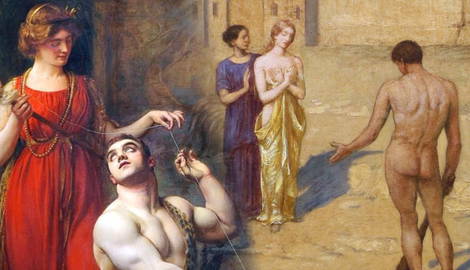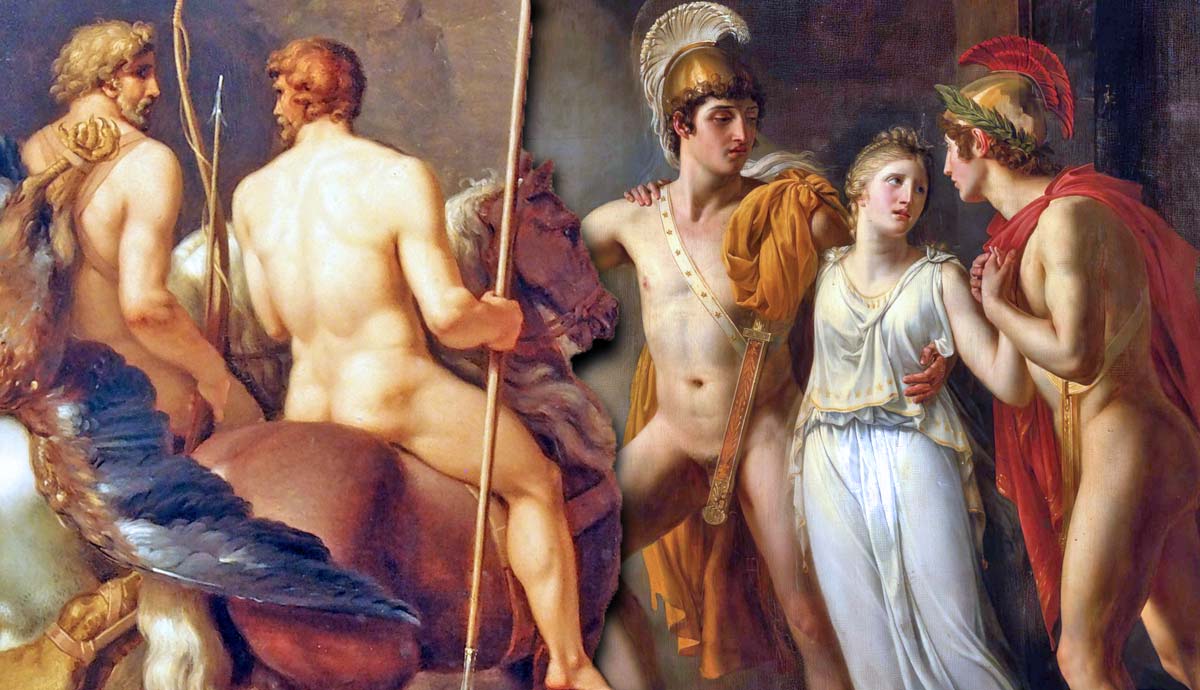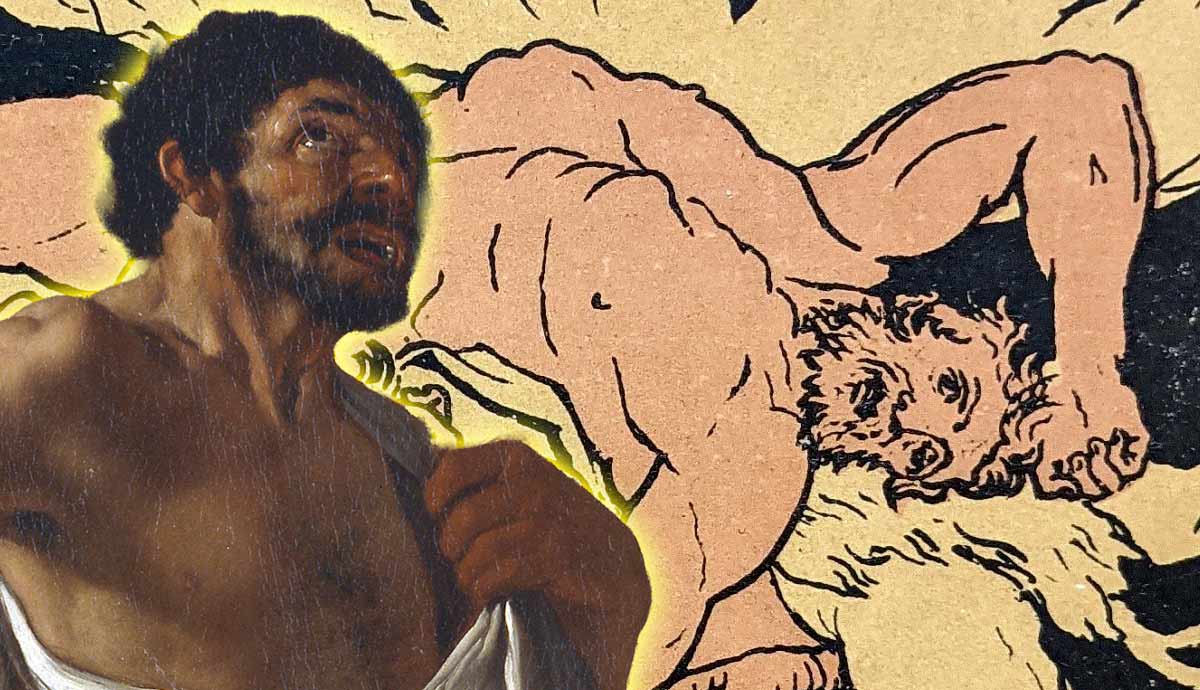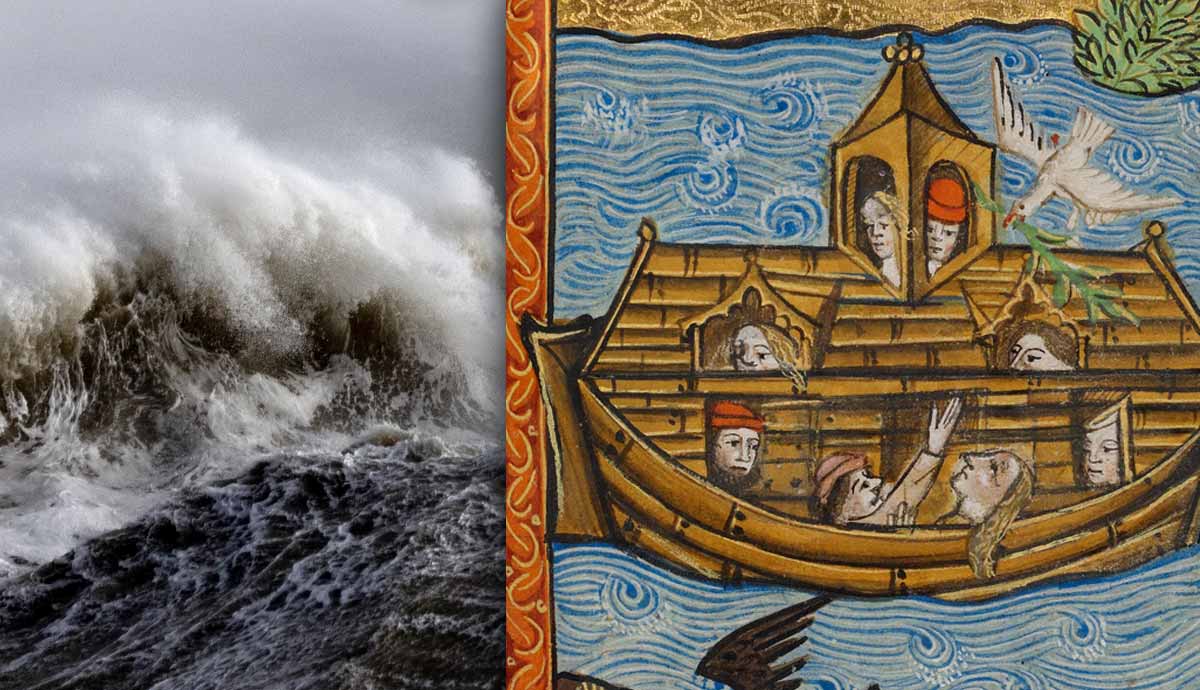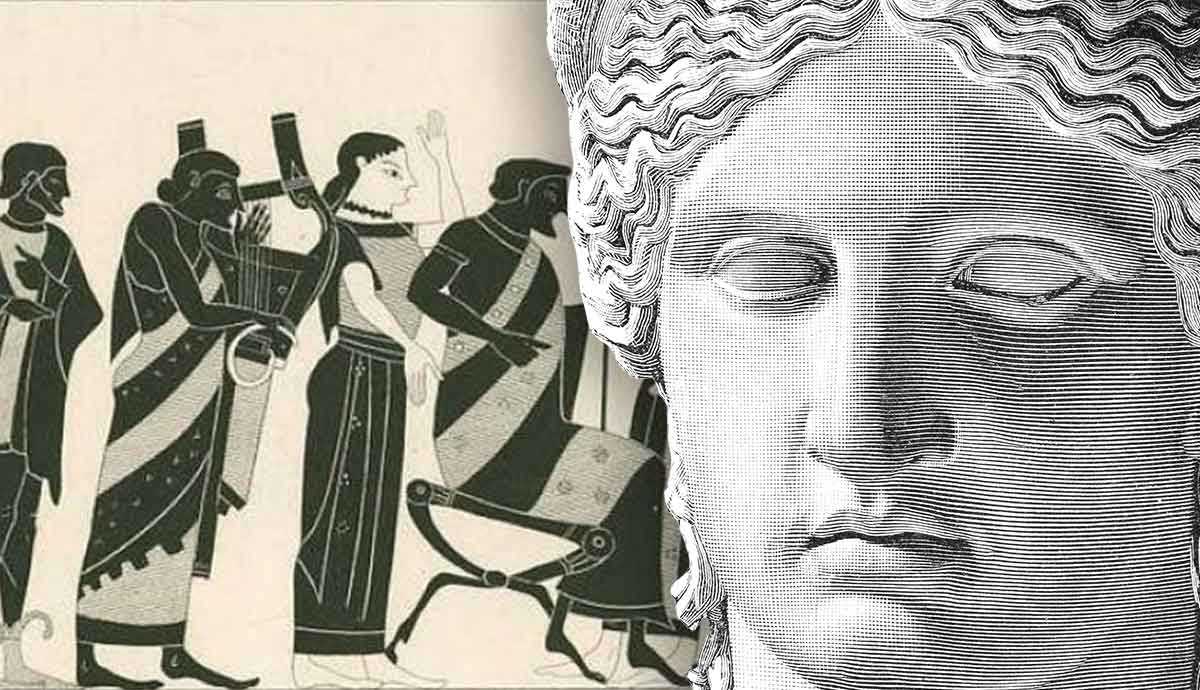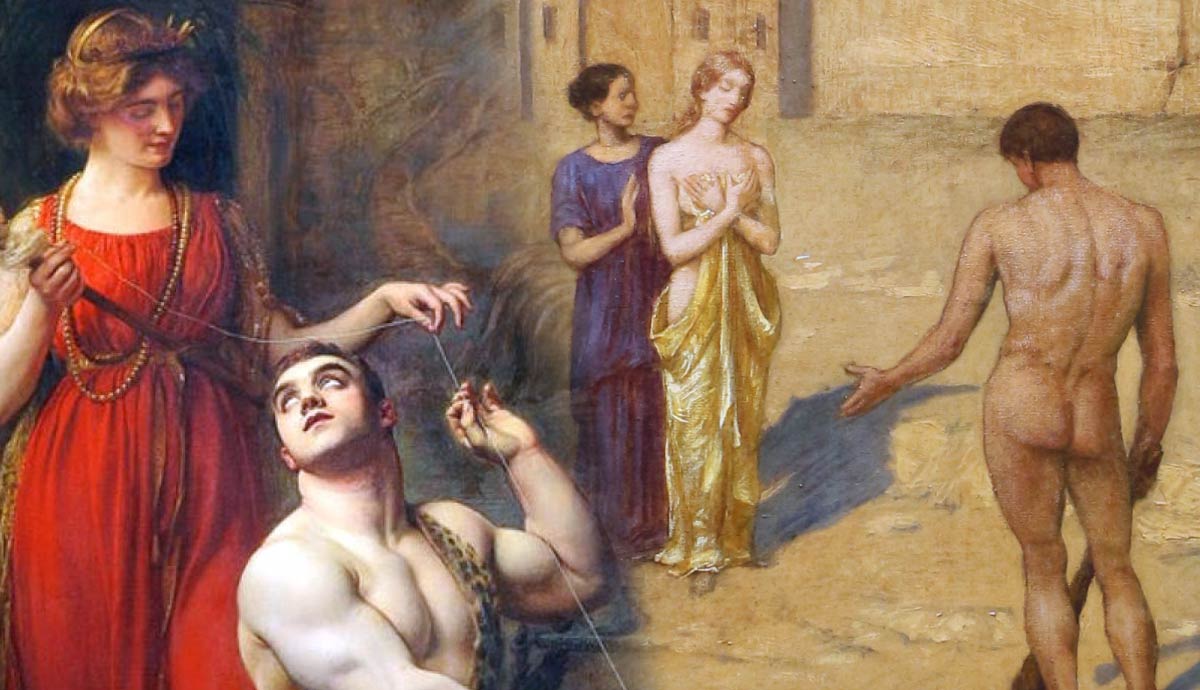
After completing his twelve labors, Heracles sought a new wife. However, his past deeds haunted him, leading to rejection, revenge, and murder. Once again, Heracles had to spend years atoning for his crimes. Yet, instead of grueling hardship, Heracles found something unexpected. Later, he sought vengeance on those who wronged him during his labors, leading armies against his enemies. Afterward, Heracles joined the Olympians in the great war against the Giants, protecting humanity and his nemesis Hera from destruction. Read on to learn what happened to Heracles after his labors.
Newly Freed Hero Looking for Love
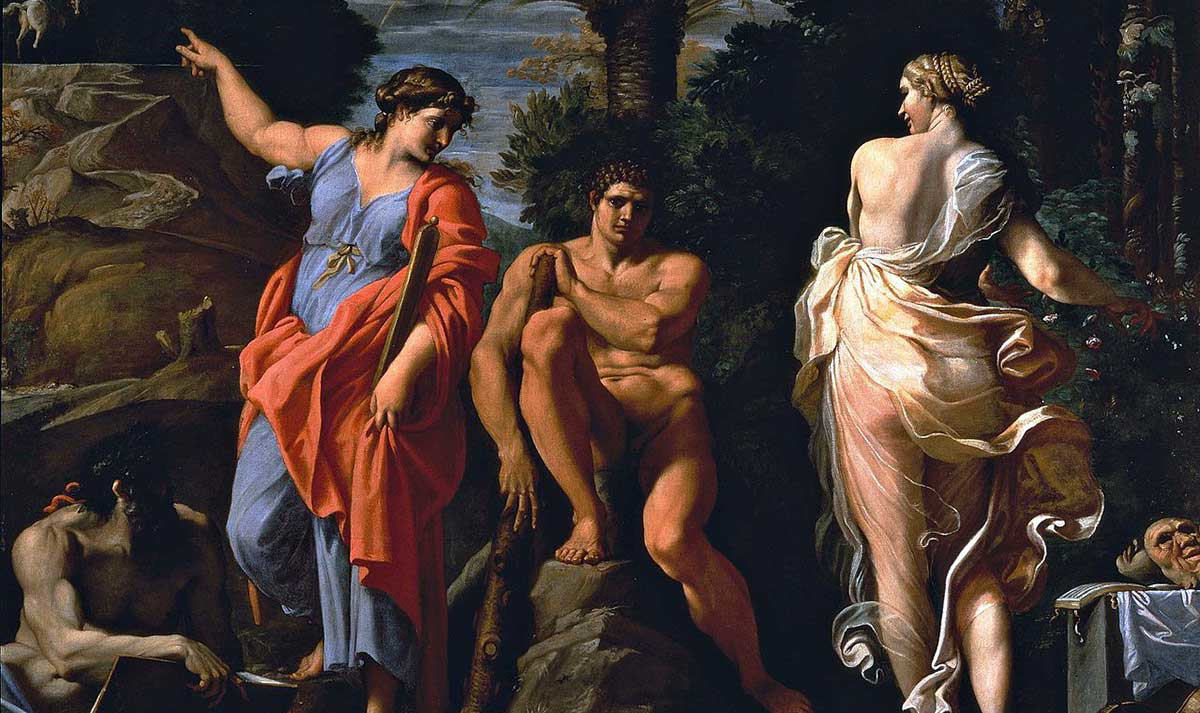
Heracles was finally free. For the last ten years, he had been commanded by his cousin, King Eurystheus, to complete twelve nearly impossible labors to atone for his blood crime: murdering his wife and children while under an awful madness sent by Hera. Heracles had dreamed of his freedom for years and had developed a long list of things to do once freed.
While Heracles planned to seek revenge on those who wronged him during his labors, the hero’s highest priority was finding a new wife. During Heracles’s final labor and descent into the Underworld, he encountered the ghost of his friend and fellow hero, Prince Meleager. Heracles promised Meleager’s spirit that he would marry Meleager’s sister, Deianira, after finishing his last labor. It seems that Heracles forgot about his promise to his friend after he had gained his freedom and heard the news of an archery contest to win the right to marry King Eurytus’s daughter, Princess Iole.
The Archery Contest
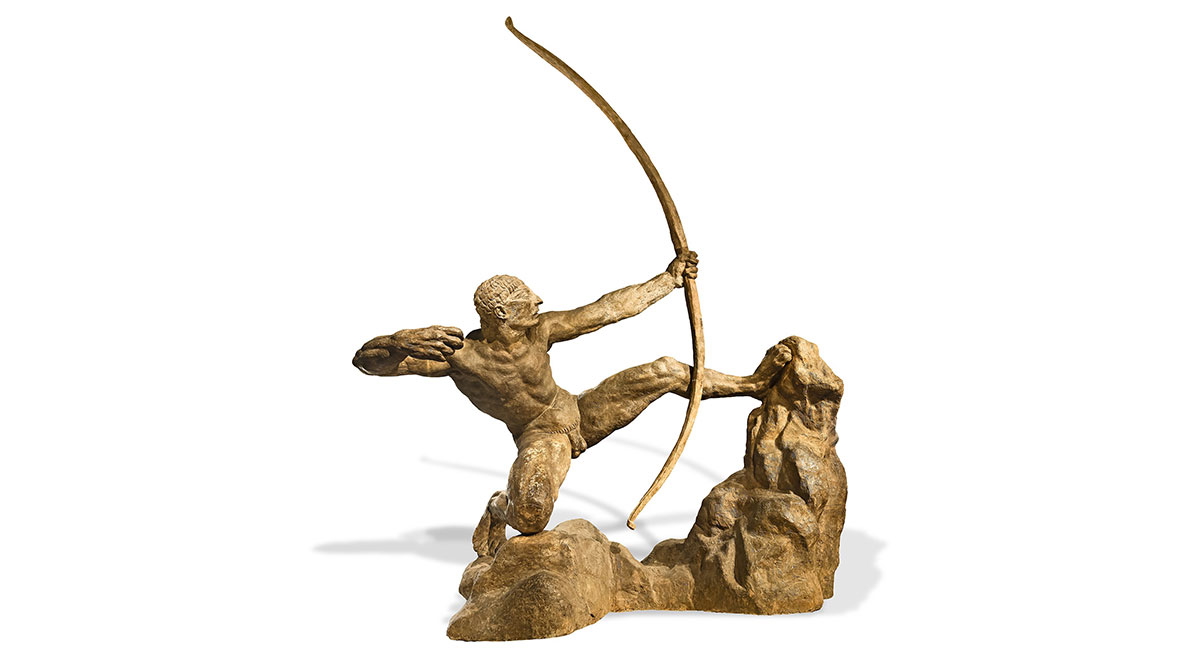
King Eurytus of Oechalia, the grandson of Apollo, was regarded as the greatest archer of his time. When his daughter Iole reached marriageable age, he decreed that only the man who could surpass him in an archery contest would be worthy of her. Many suitors had tried and failed to beat him with a bow.
When Heracles heard about the contest, he eagerly joined. Heracles held Eurytus in high esteem, as the King had been his archery instructor in his youth, teaching him everything he knew about the bow. While the rumors of Iole’s beauty were undoubtedly appealing, Heracles was most interested in having his respected teacher as a father-in-law.
While Eurytus may have once been hailed as the best archer, years of monster slaying had honed Heracles’s archery skills. It became clear that the student had surpassed the master when Heracles easily beat Eurytus in the contest. However, although he won, Eurytus refused to award Heracles with his daughter’s hand in marriage. He told Heracles that he would not risk his daughter’s safety by letting her marry a man who had murdered his previous wife and children.
Heracles explained his madness as a curse from Hera and Iphitus, Eurytus’s son, admired Heracles and tried to persuade his father to reconsider. Despite Iphitus’s plea to his father to honor his promise, Eurytus refused and asked Heracles to leave Oechalia. Heracles left the city and vowed to seek revenge against Eurytus.
Going Back to Where It All Began
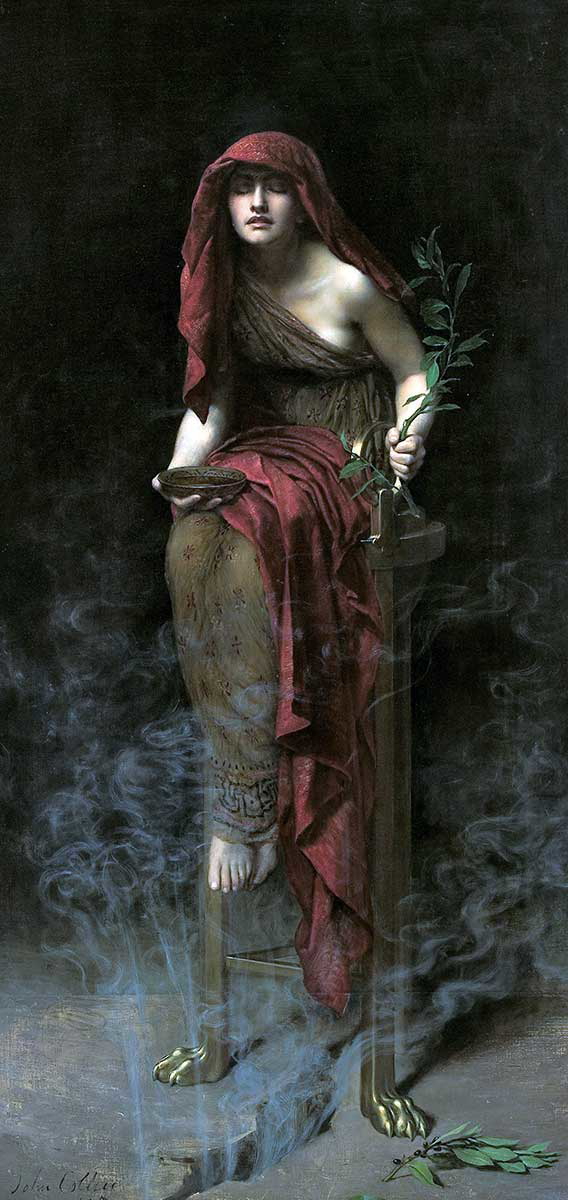
Coincidentally, around the same time Heracles left Oechalia, twelve of Eurytus’s prized cattle mysteriously disappeared. Eurytus immediately suspected that the theft was a petty act of revenge from Heracles. However, Iphitus denied his father’s accusations and volunteered to find the true culprit. Iphitus traveled to Tiryns to tell Heracles about the theft and to find the real culprit.
While many people thought Heracles was the thief, it was actually Autolycus, the son of Hermes and a well-known cattle rustler. Autolycus took advantage of the public conflict between Heracles and Eurytus to steal the cattle.
Heracles, wanting to clear his name, offered to help search for the cattle and invited Iphitus to stay with him. However, Heracles and Iphitus argued during their investigation, and Heracles lost control of his temper. The argument led to Heracles succumbing to another episode of uncontrollable madness, causing him to hurl Iphitus off the high walls of Tiryns, resulting in Iphitus’s death.
In ancient Greece, killing a guest was a severe crime, considered second only to murdering a family member. Xenia, the law of hospitality, was enforced by Zeus, who punished violators harshly. When Heracles killed his guest, Iphitus, he was afflicted with a disease as punishment. To seek atonement, Heracles needed purification from an anointed King and approached King Neleus of Pylos for help, but Neleus refused due to his friendship with King Eurytus. Heracles then sought purification from King Hippocoon of Sparta, who also refused. In response, Heracles swore to seek revenge against both Kings for refusing to cleanse him of his crime.
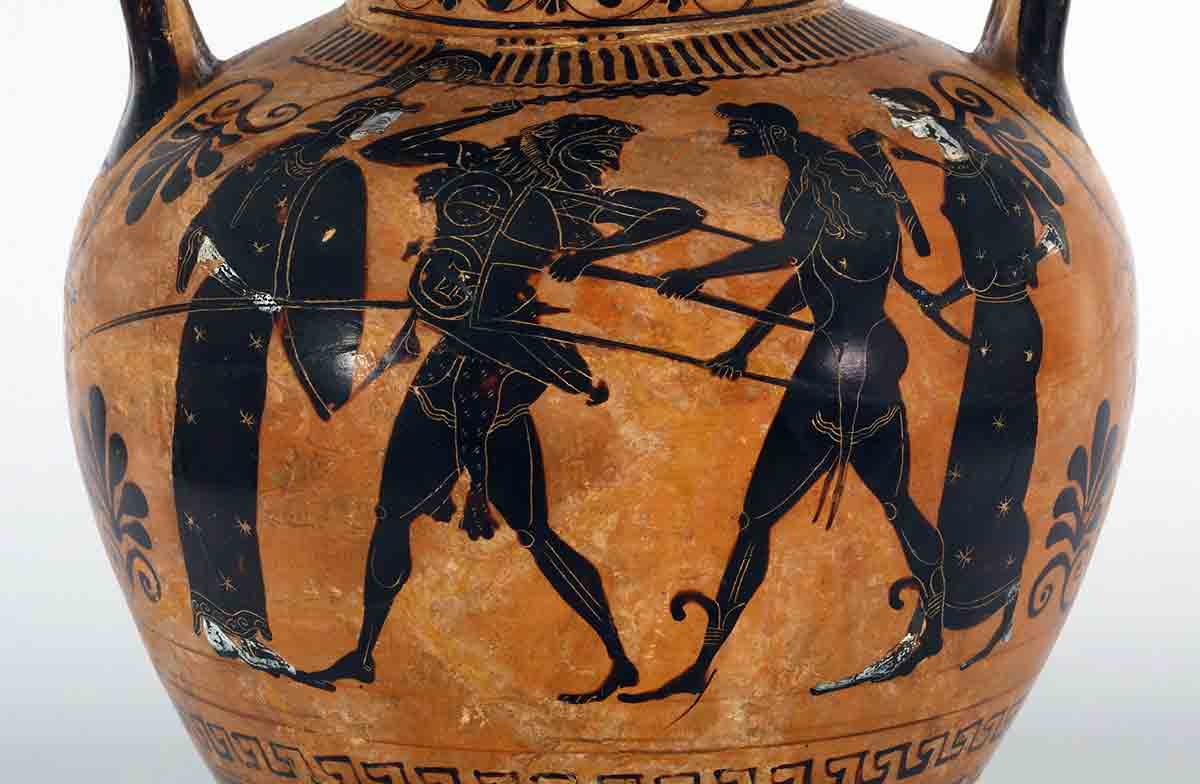
Heracles found himself in a familiar situation: he desperately needed ritual atonement, but no anointed King would help him. So, like last time, he sought advice from the Oracle of Delphi. However, the Delphic Oracle named Xenoclea initially refused to help Heracles due to his violation of the laws of hospitality and would only help him once he had been cleansed. But Heracles could not start the purification process without the oracle’s guidance, which frustrated him. So, he took the priestess’s tripod and refused to return it until she answered his questions. Eventually, Apollo, the god of prophecy, stepped in, returned the tripod, and ordered Xenoclea to answer Heracles’s questions.
Xenoclea told Heracles that to be purified for killing Iphitus he had to enter into slavery for three years. The money made from his sale and the wage he would have earned during his enslavement would be given to Eurytus as compensation for his son’s death. Xenoclea also declared that he would become the property of Queen Omphale of Lydia.
Heracles’s life of atonement and hardship seemed far from over as he was once again forced into the service of another to atone for his crimes. Some might argue that Heracles brought it on himself, or perhaps it was another cruel trick of his old nemesis, Hera. Regardless, Heracles’s life of labor was far from over.
Heracles and Omphale
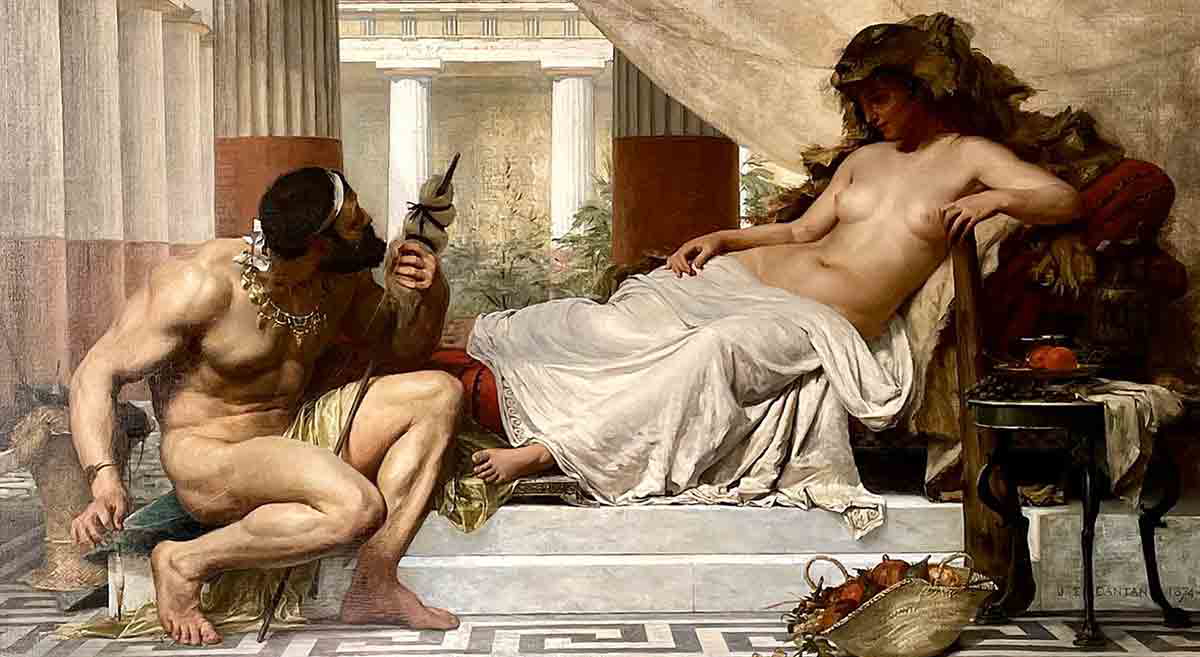
Omphale ascended to Lydia’s throne in modern-day Turkey after her husband, the mountain King Tmolus, was killed by a bull. During her reign, Lydia flourished, and Omphale readily paid three silver talents, a significant amount of money, to buy the renowned hero Heracles.
As Heracles’s mistress, Omphale commanded the hero to complete many degrading and grueling tasks, including cleaning her feet and dispatching bandits within her realm. Omphale ordered Heracles to switch clothes with her, making matters even more humiliating. The Queen enjoyed wearing the lion skin cloak of Heracles and wielding his club, while Heracles was forced to dress as a woman and wear clothes from Omphale’s wardrobe. Heracles served Omphale for three years, and during that time, the hero undertook a series of minor labors for the Queen, similar to what he had done for Eurystheus.
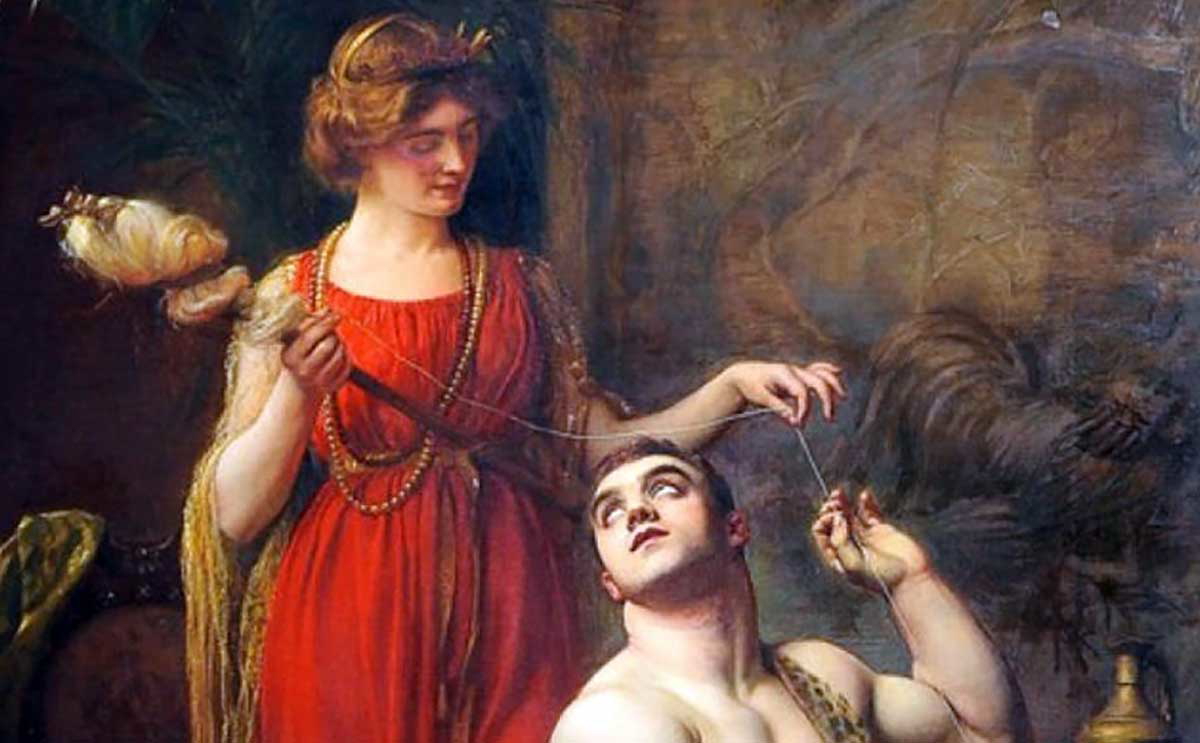
Omphale tasked Heracles with burying the remains of Icarus, who tragically fell into the sea after flying too close to the sun. Icarus was the son of the inventor Daedalus, and both were imprisoned in a tower by King Minos of Crete after Daedalus helped Theseus navigate the labyrinth of the Minotaur.
Daedalus had constructed wings made of wax and feathers to escape, warning Icarus not to fly too low or too high to avoid damaging the wings. Unfortunately, Icarus ignored the warning. As he ascended higher and higher during his flight, the sun’s rays melted the wax, causing the feathers to fall off. This led him to plummet into the sea, meeting his unfortunate end. Unable to save his son, Daedalus had to continue his flight alone. Fortunately, under Omphale’s orders, Heracles retrieved Icarus at sea and gave him a proper burial.
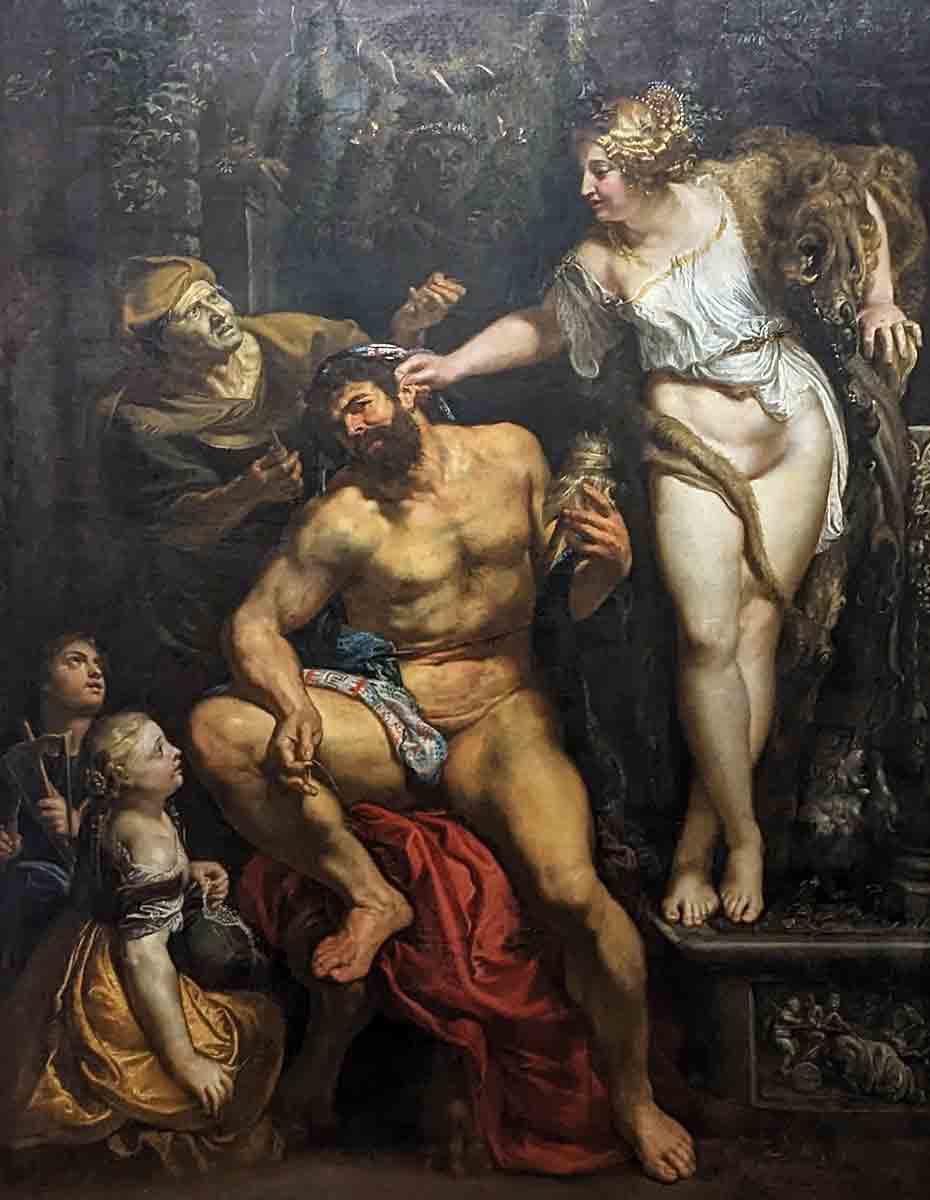
Omphale then ordered Heracles to conquer the neighboring city of the Itones, which had been sending raiding parties into Lydia and he was also sent to investigate a local wine farmer named Syleus. Omphale had received reports that Syleus was forcing travelers who passed by his vineyard to work on his land before killing them. Heracles traveled to the vineyard, discovered Syleus’s cruelty, killed the brutal farmer, and then set fire to the farm.
Similarly, Heracles was commanded to deal with a farmer named Lityerses, the brother of King Midas of Phrygia. Lityerses used to force travelers to work on his farm during the harvest, only to behead them afterward. Heracles challenged Lityerses to a harvesting contest, defeated him, and then beheaded him.
Later, Omphale sent Heracles to deal with the mischievous Cercopes, small monkey-like brothers who enjoyed causing chaos and stealing from her citizens. Heracles caught and bound the troublemakers to a wooden pole after they stole his weapons. While traveling back to Omphale, the Cercopes, who now had a perfect view of the hero’s rather hairy buttocks, began to laugh at it. When Heracles asked what they found so funny, the Cercopes told him that their mother had long ago given them a prophecy warning them to avoid a man with a hairy behind.
In some versions, Heracles finds the story amusing and lets them go, while he hands them over to Omphale in others. The Cercopes would go on to try and trick Zeus, who, lacking Heracles’s sense of humor, transformed the brothers into a pair of monkeys.
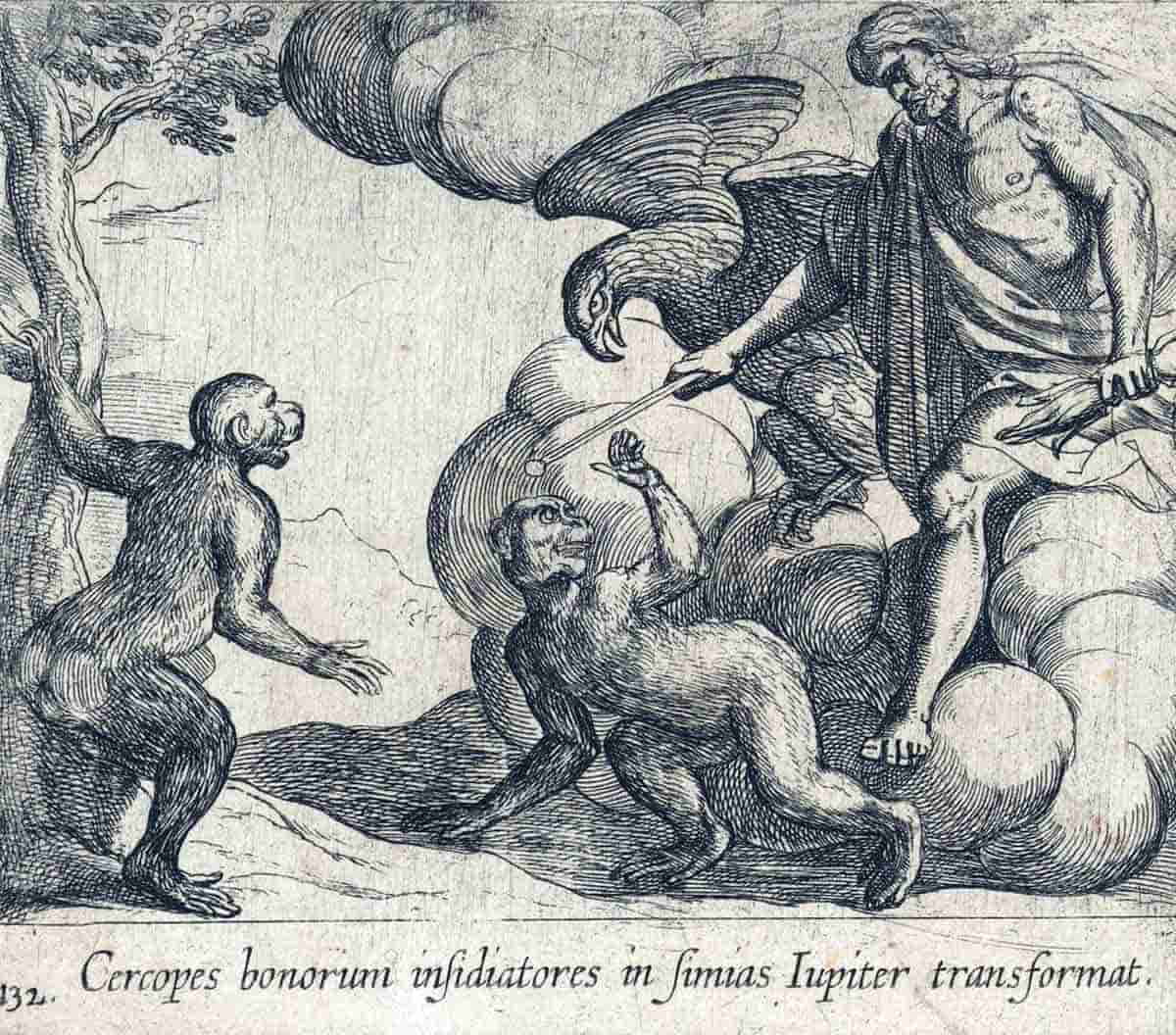
It did not take long for Heracles and Omphale to become lovers, and later, the servant and mistress fell in love and married. After the wedding celebrations ended, Omphale and Heracles returned to their chambers. While they were asleep, the god Pan snuck into their room. Heracles, still dressed as a woman, was mistaken for Omphale by Pan in the darkness. Pan attempted to force himself upon Heracles, but Heracles woke up and threw the god off before anything could happen.
Omphale and Heracles had two sons, Agelaus and Tyrsenus. Agelaus later succeeded his mother as the ruler of Lydia and was the ancestor of the famous Lydian King, Croesus. Tyrsenus supposedly invented the trumpet, then left Lydia and settled in the region of the Tyrrhenians in Etruscan Italy.
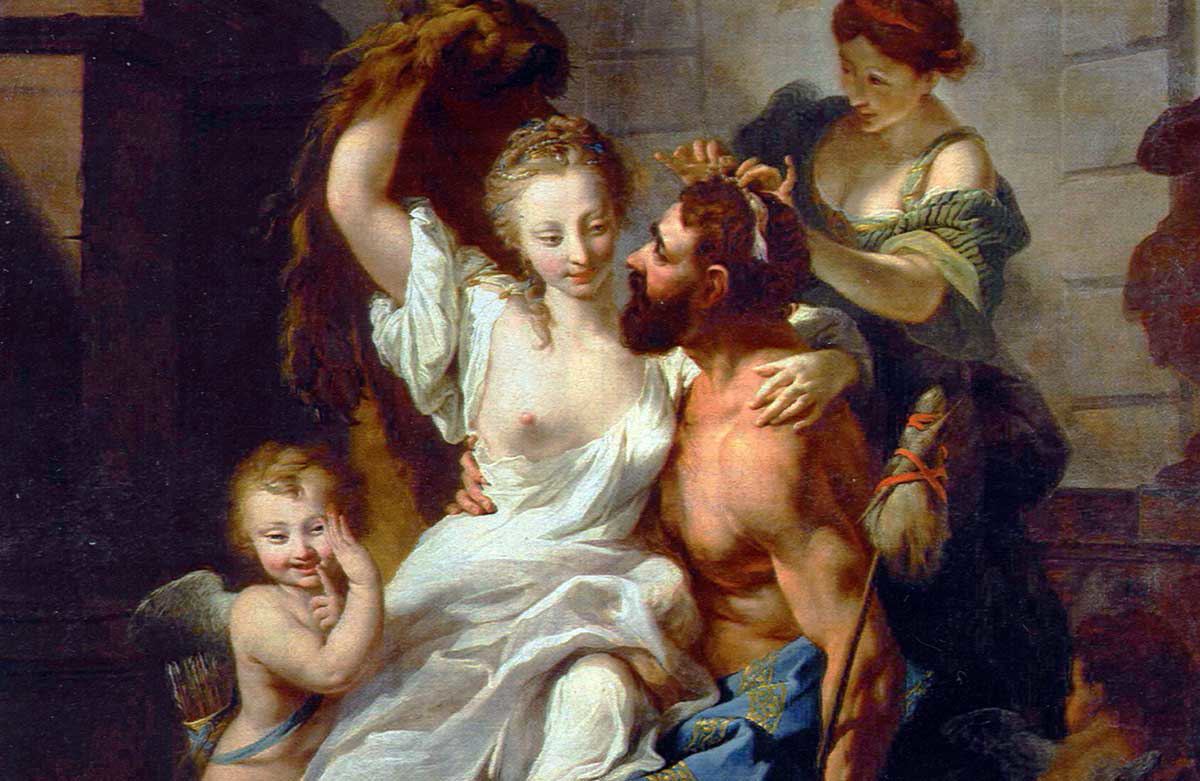
After three years of service, Omphale sent the wages that Heracles would have earned to King Eurytus as the oracle had commanded. However, Eurytus refused to accept them, claiming that no amount of money would compensate for the loss of his son. Eurytus’s rejection further angered Heracles, who would not forgive the insult. Seemingly, Heracles abandoned his second wife Omphale and his sons once he finished his service and regained his freedom. Once again cleansed of his sins, Heracles set forth on a new mission: to deal with the people on his grudge list.
Grudges
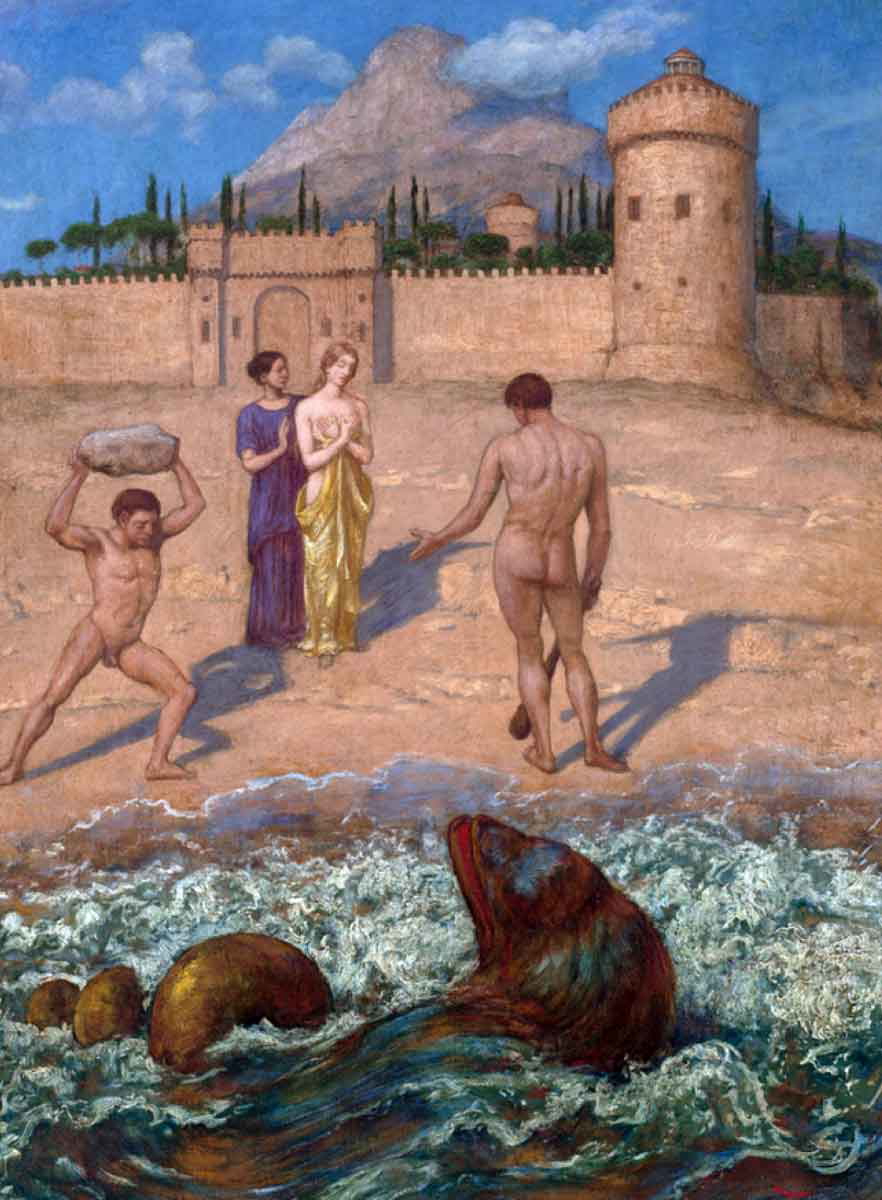
Heracles had an often-overlooked characteristic—his remarkable ability to hold onto a grudge. Throughout his twelve labors, Heracles had made a list of people he swore to one day take revenge on for cheating him. At the end of his labors, Heracles had two names on his list: King Augeas of Elis and the Trojan King Laomedon. Both men had broken their promise to pay Heracles after he helped them.
Augeas refused to pay Heracles for cleaning his stables during his fifth labor and Laomedon also refused to pay Heracles after saving his daughter Hesione from a sea monster at the end of his tenth labor. Since completing his labors, Heracles had added three more names: King Neleus of Pylos, King Hippocoon of Sparta, and King Eurytus of Oechalia.
Heracles’s first target was Laomedon. The hero gathered a small army and set sail to Troy, accompanied by his old friends, the brothers Telamon and Peleus (the fathers of Ajax the Greater and Achilles). Together, they sacked the city of Troy and killed Laomedon and all but two of the royal Trojan family. Hesione, the princess Heracles had once saved, was given to Telamon as a bride. Heracles also decided to spare Laomedon’s youngest son, Priam, who was left in charge of the now-ruined city of Troy.
Priam remembered how easily Heracles destroyed his home and later made Troy nearly impregnable to all invaders. Some accounts also claim that Priam never forgave Telamon for abducting his sister Hesione. As a result, Priam sent his son, Paris, to abduct Helen of Sparta in revenge, ultimately leading to the start of the Great Trojan War.
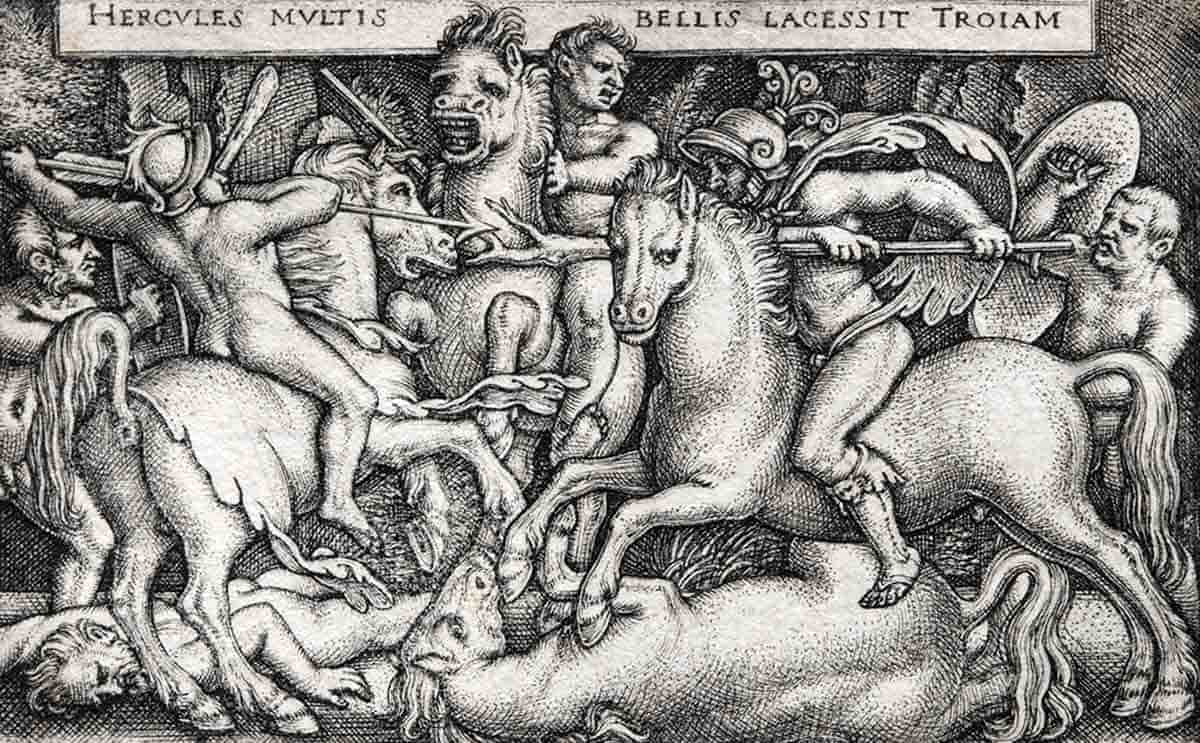
Heracles then returned to mainland Greece and assembled another small army to attack the city of Elis, ruled by King Augeas. Augeas received news of the invasion in time to organize a defense force led by the conjoined twins Eurytus and Cteatus, also known as the Moliones. These fearsome fighters, born to Poseidon and Molione, shared one body, two heads, and four arms and legs. Under the leadership of the Moliones, Augeas’s army repelled Heracles’s initial attack.
During Heracles’s second assault, the Moliones gained the upper hand and killed Iphicles, Heracles’s twin brother. Iphicles’s death sent Heracles into a violent rage, leading him to brutally kill the twins by bisecting them with a sword. Driven by anger and bloodlust, Heracles then overcame the remaining defenders, eventually finding King Augeas and massacring him and his entire family.
After Heracles’s forces conquered Elis, he invited Phyleus, the last surviving son of Augeas, to become the new King. Phyleus had been exiled from Elis for defending Heracles when Augeas failed to keep his promise to pay the hero. With Phyleus as the new King, Heracles established an athletic competition in Elis to honor his father, Zeus. Heracles decreed that the contest would be held every four years and named it after his father’s home, calling it the Olympic Games.
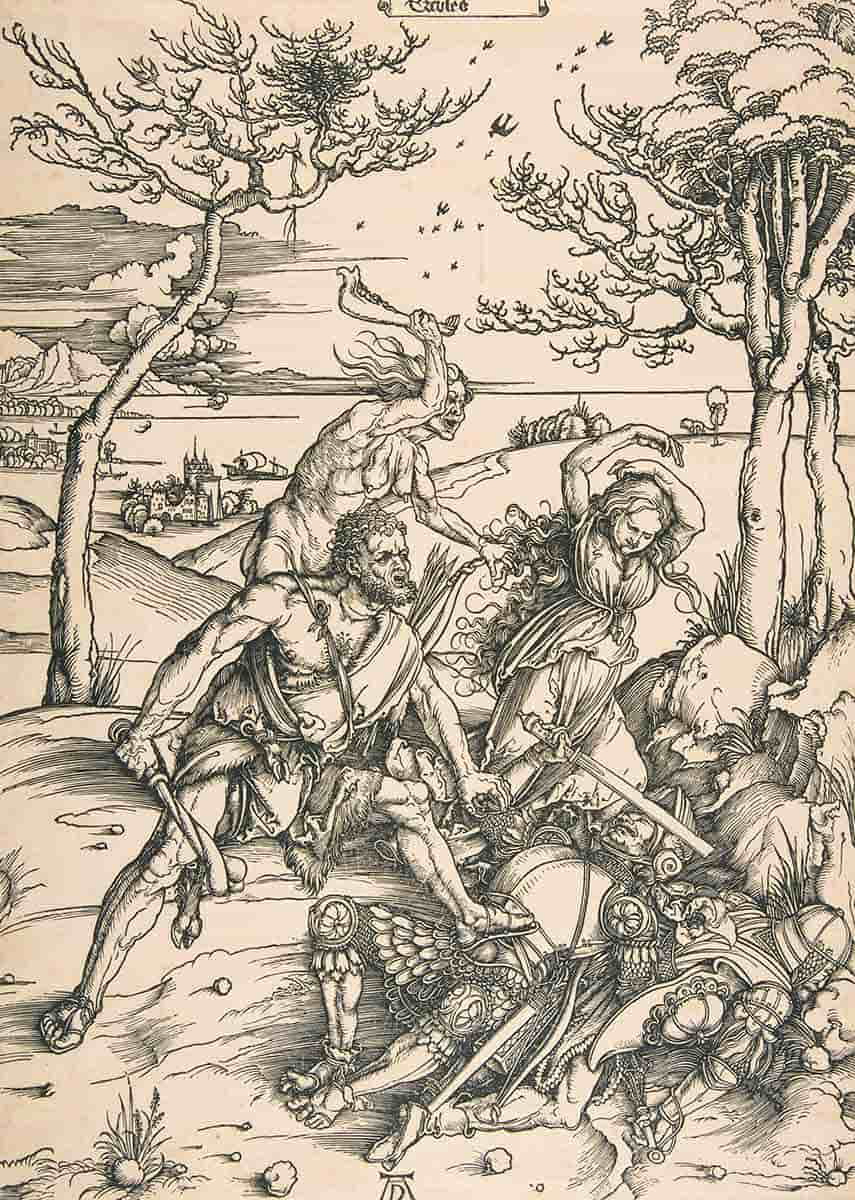
After crossing another name off his list, Heracles directed his attention to King Neleus of Pylos. Neleus had refused to absolve the hero of his crime against xenia, leading to Heracles’s enslavement under Omphale. Heracles marched on Pylos and overcame Neleus’s defending army, killing Neleus and his entire family.
Neleus had one surviving son, Nestor, who was away from the city during Heracles’s attack. Nestor was a renowned hero in his own right and had participated in Jason’s quest for the golden fleece and the Calydonian boar hunt. After Heracles’s attack, Nestor returned and successfully rebuilt Pylos into a thriving and peaceful city. He earned a reputation as one of the wisest kings in Greek mythology. In his later years, Nestor played a crucial role as one of the key advisors to King Agamemnon during the Trojan War.
The news of Heracles’s quest for revenge had by now reached Hippocoon, who sent his Spartan fighters to help Neleus battle Heracles. However, when Heracles saw Spartans at Pylos, he became further provoked and marched on Sparta with his army.
The battle-hardened and skilled Spartans presented a formidable challenge for Heracles. Nevertheless, he ultimately managed to defeat them and hunt down and kill Hippocoon and his entire family. Years earlier, Hippocoon and his sons had ousted the former King of Sparta, Tyndareus, who was Hippocoon’s brother. Heracles called upon Tyndareus to reclaim the Spartan throne after his brother’s defeat.
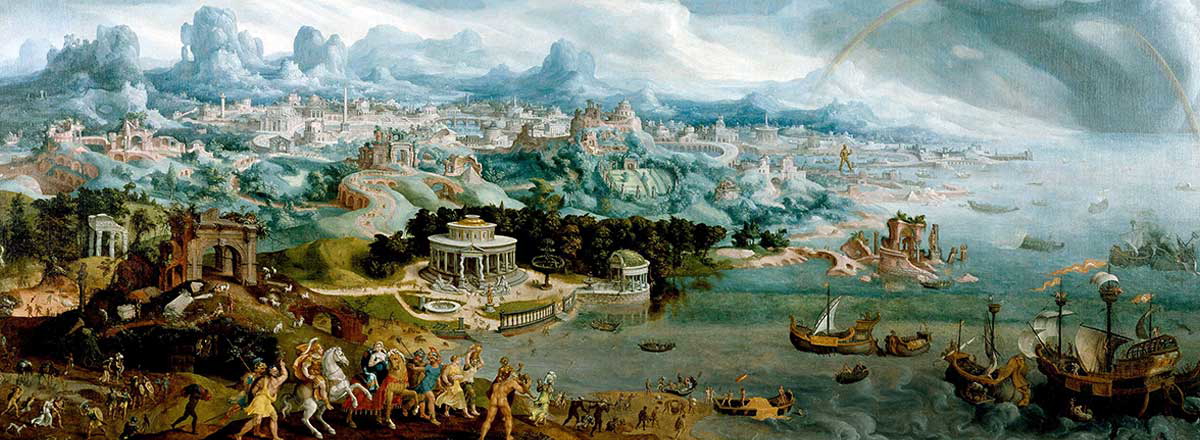
Heracles’s restoration of Tyndareus to the Spartan throne and his sacking of Troy had significant consequences. Tyndareus later married his two daughters, Clytemnestra and Helen, to two exiled Mycenaean princes, Agamemnon and Menelaus. All four of them played essential roles in the Trojan War. Some have suggested that the Trojan War might never have happened without Heracles’s petty vendettas against Hippocoon and Laomedon. This completely altered the political landscape of the two influential cities and sowed the seeds for an all-out war between the Trojans and the Greeks.
Giants
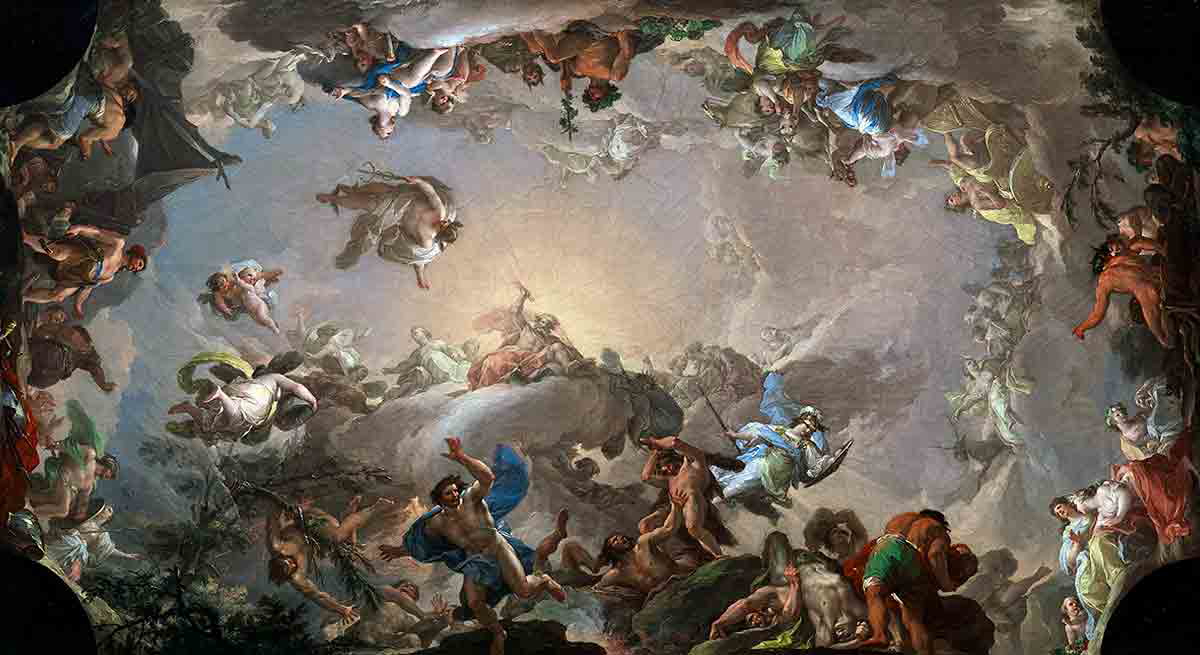
Before Heracles could cross off the final name, King Eurytus, from his grudge list, his father Zeus called him to Olympus. While Heracles had been preoccupied with vengeance, a war was brewing between the Olympians and the giants, later known as the Gigantomachy.
When Cronus overthrew and castrated his father, the primordial sky god Uranus, his blood fertilized the earth, leading to the birth of many creatures, including the Giants. The giants were enormous beings with serpentine legs and the strength and power that rivaled the Olympians. Gaia roused the giants to overthrow Zeus and the Olympians as revenge for the gods’ overthrow of her children, the Titans.
An oracle had made a prophecy warning both sides about an upcoming war and prophesied that the gods of Olympus could not defeat the giants without the aid of a mortal hero. The prophecy led to a cold war between the two, each waiting for a reason to instigate a full-on battle.
The spark that ignited the Gigantomachy arose while Heracles was out fighting kings who had annoyed him. One of the giants, Alcyoneus, stole the cattle of the sun god Helios, who jealously guarded them from both gods and mortals. Alcyoneus’s provocation led to both sides gearing up for the inevitable conflict.
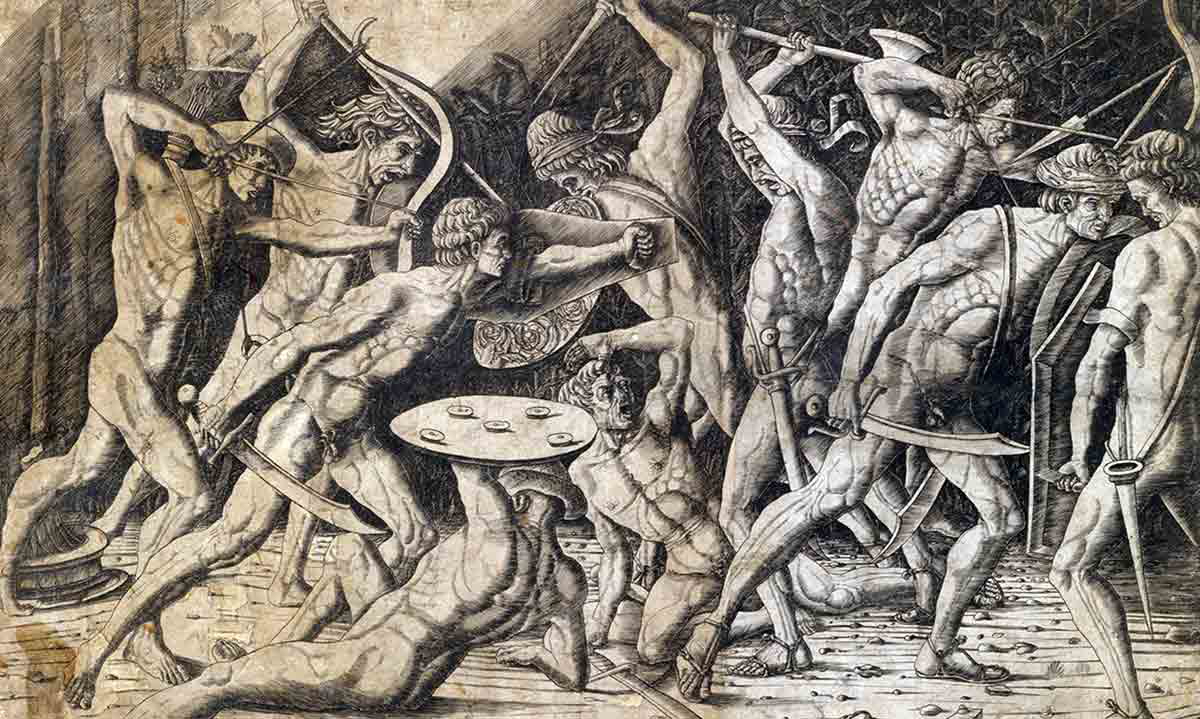
Faced with an impending war, Gaia searched the world for a magical herb to grant immunity to the giants and protect them from a prophesied mortal hero. However, Zeus, with the help of Prometheus, anticipated Gaia’s plan. Zeus ordered Helios, the god of the sun, and Selene, the goddess of the moon, to stop driving their chariots, plunging the world into darkness. During this darkness, Zeus gathered all the magical herbs and concealed them from Gaia.
When the war finally began, around 100 giants faced Heracles, the twelve Olympians, Hecate the goddess of magic, the Moirai, the sisters of fate, and victory herself, Nike. Their two most powerful fighters, Alcyoneus and Porphyrion, led the giants. Alcyoneus appeared impervious to attacks. Instead of risking a close-quarter fight, Heracles shot him with his hydra venom arrows, which seemed to kill him. However, when Alcyoneus fell back to the earth, the giant instantly revived him to full strength. Like Heracles’s old foe Antaeus, Alcyoneus seemed revitalized whenever he fell to the ground.
As Heracles hopelessly kept Alcyoneus at bay with his attacks, Athena whispered the solution to defeating the impervious giant. Alcyoneus was immune to all harm as long as he was on his native soil. Yet if taken away from it, he would succumb to all the damage he had so far shaken off. Heracles understood what he needed to do. He holstered his weapons, grabbed hold of Alcyoneus, and dragged the giant from Greece to Italy. Once on the Italian peninsula, all of Alcyoneus’s power faded, and he succumbed to his injuries. Heracles then buried him under Vesuvius.
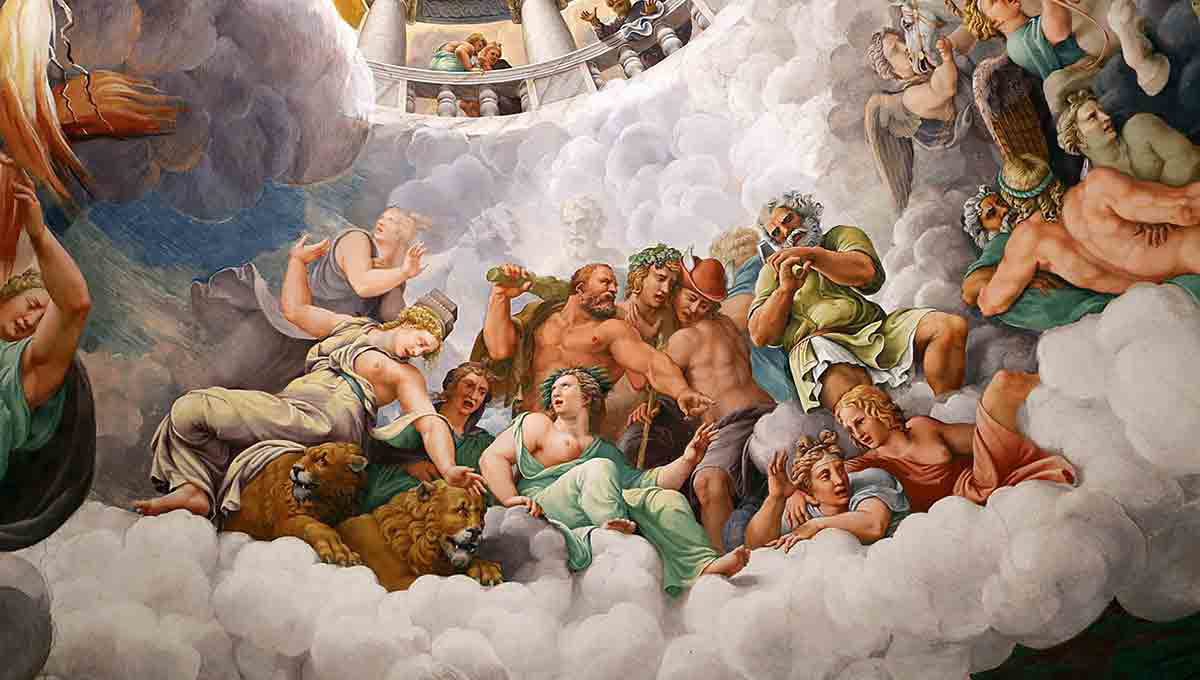
Next, Heracles faced Porphyrion, the last remaining giant leader. Porphyrion was quick and agile, dodging all of Heracles’s venom-coated arrows. He was determined to attack Hera and impregnate her. Porphyrion might have succeeded if Heracles had not stood in his way to protect his stepmother.
Despite his flaws, Heracles was ultimately a hero who always tried to defend the vulnerable regardless of who they were. Despite Hera being a constant source of trouble in his life, he bravely shielded her from Porphyrion’s attempted attack.
The prophecy had warned Zeus that his thunderbolts would not kill the giants. However, Zeus soon discovered that while they could not kill them, they did momentarily stun them. While Porphyrion was distracted trying to reach Hera, Zeus used his thunderbolts, stunning him long enough for Heracles to kill him with his poison arrows. Some say that Zeus cast a spell on Porphyrion, causing him to lust after Hera, which distracted the giant long enough for Zeus to land a hit with his thunderbolt.
In the end, the Olympian gods emerged victorious over the giants, largely thanks to the help of Heracles, their prophesied hero. While the gods managed to defeat most of the giants, Heracles played a crucial role in taking down their leaders and ensuring Hera’s safety throughout the remainder of the conflict.
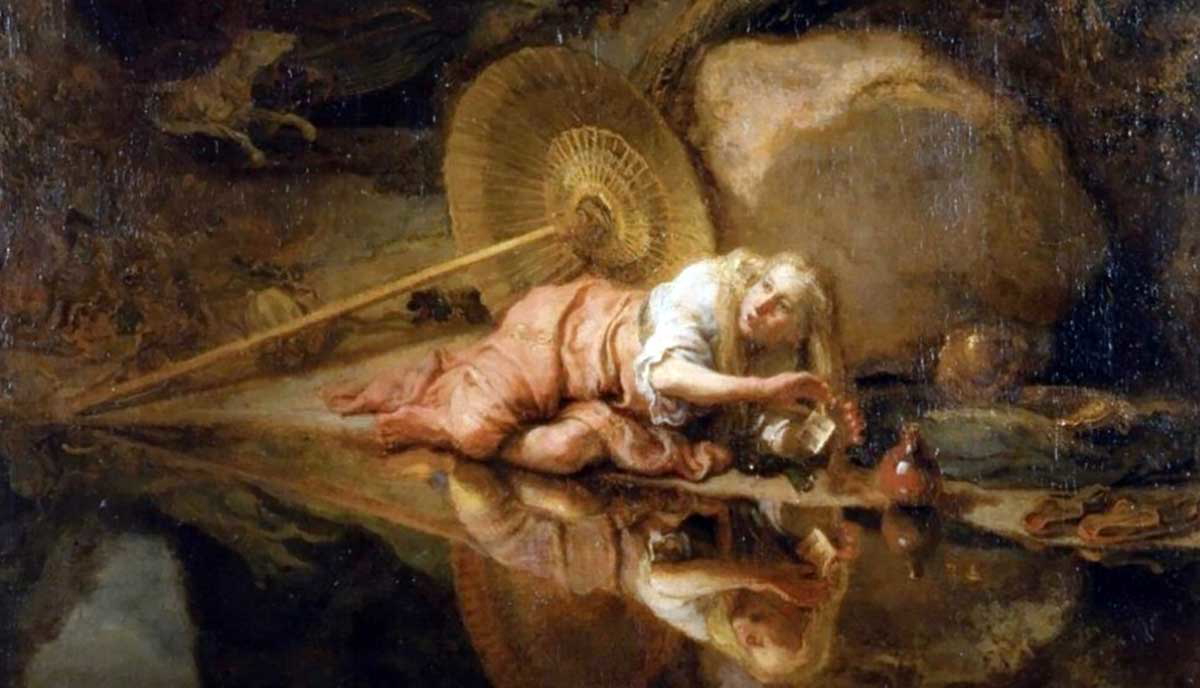
Even though Hera had attempted to ruin Heracles’s life at every opportunity, including being the architect of his labors and the instigator of his family’s death, her feelings towards the hero changed after he defended her from the giants. The hatred she once harbored for Heracles transformed into love and gratitude.
Finally free from Hera’s wrath after a lifetime of torment, Heracles decided to settle down, marry, and find love. Little did he know that this newfound happiness would ultimately lead him to his fateful end.
